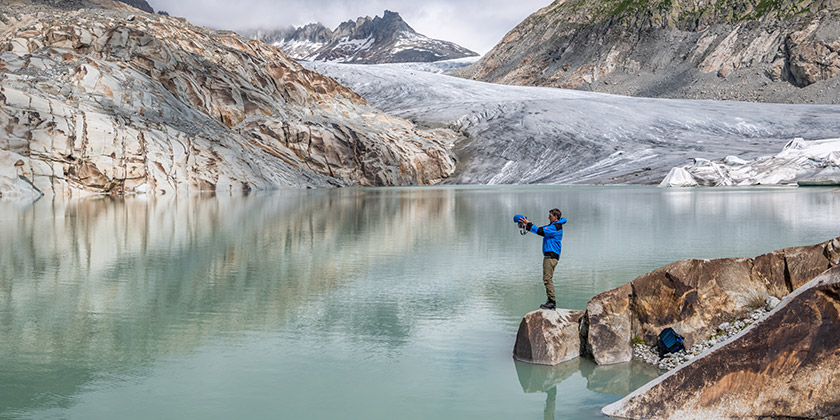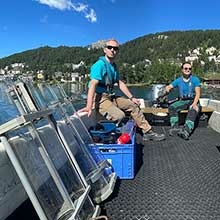Department Surface Waters - Research and Management

Surface Waters - Research & Management (Surf)
We focus both on processes in the aquatic environment as well as on entire systems of natural waters.
We perform basic and applied research and several projects have a problem-oriented and interdisciplinary focus, including system analysis. Read more
News
Latest Publications
Atton Beckmann, D., Werther, M., Mackay, E. B., Spyrakos, E., Hunter, P., & Jones, I. D. (2024). Are more data always better? – Machine learning forecasting of algae based on long-term observations. Journal of Environmental Management, 373, 123478 (13 pp.). doi:10.1016/j.jenvman.2024.123478, Institutional Repository
Roethlin, R. L., Meister, A. C. E., Gilli, A., Lennartz, S. T., Amsler, H. E., Dittrich, M., … Dubois, N. (2024). Tin contamination in sediments of Lake Zurich: source, spread, history and risk assessment. Swiss Journal of Geosciences, 117(1), 22 (15 pp.). doi:10.1186/s00015-024-00471-6, Institutional Repository
Bachmann, O., Foubert, A., Dèzes, P., Hetényi, G., Jäggi, A., Müntener, O., … Zeyen, N. (2024). Geosciences community roadmap 2024. Update of Swiss community needs for research infrastructures 2029–2032 (Swiss Academies reports, Report No.: 19/8). doi:10.5281/zenodo.14264991, Institutional Repository











